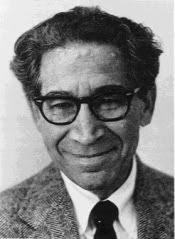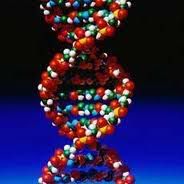
This is a
post in the thread on bait and switch, by Mary Jane.
http://forums.carm.org/vbb/showthread.php?57332-atheist-bait-and-switch&p=1730779#poststop
I have a huge body of scientific work that validats my experince of God arguments. CARM atheists have done everything they could think of to discredit, obfuscate, and ignore that body of work except actually read some and argue fierily about it. I put up a link to a book chapter over 147 times two people read it and one claimed he didn't understand it the other attacked something in it that the author was attacking to, only the atheist thought he was beating up on the author.
This is another pointless claim by MJ to create the impression that she's read the studies that I talk about. Again, she has not read them. All she's doing is confusing a summary article by Mohan with a study. There is a Mohan study, but she hasn't read it. What she read was an article by Mohan that is not a study. By this she actually twisted all the statements around on the assumption that i have to be wrong so what I say is false so they must mean the opposite.
On that premise she just goes wild trying to create impressions that have no bearing on reality.
Originally Posted by Metacrock 
the 200 studies that none of your will read, and that you can't come to grips with totally blow your position away.
They establish the co-determinate of God on the same kind of grounds that you establish any scientific fact.
LOL. Except a lot of us HAVE READ THEM and our positions remain entirely unblown.
what she points to here is nothing but a discussion about the summary article that is not a study. This is does nothign to prove that she read a study. Besides that he's acting so triumphant about reading a study (which she did not do) one study! there 199 more to go that she clearly hasn't read (if she read one).
Perhaps we can tackle this again, since you didn't answer the last time.
Ok. Let's get this cleared up once and for all.
The 200 studies that Meta likes to mention all the time and bring up in every thread, no matter what the subject is, are as follows:
Yea lets do take the opportunity to clear things up.
MJ:
134 'studies' is a reference list (bibliography) copied from an article by Mohan on the use of spirituality in counselling. There are very few actual studies in that bibliography.
Factual error 1: I never said there were 134 studies on the bib to the Mohan article (she admits here the Mohan reading is an article). I used the Bible as a partial list of studies because there are many on it. I never claimed a number nor did I ever claim that it was a major list.
Factual Error 2: the statement that there aer few studies is totally untrue and totally at odds with the fact. Most of the entries in the bib are studies.
Factual Error 3: She is confused about the nature of the list because there is no one source published that contains all the studies I speak of when I say "200." That figure is my own form my bib in my book that's not out yet. I use a a couple of the bibs from articles as references because they contain several of the studies. I never said the whole is compiled from just Mohan.
MJ
It is mostly populated by articles, reviews and religious texts. The list can be found here. Meta, of course, still includes these references in his list of 200 studies and accuses me of 'nitpicking' when I point out that they're not.
This is total confusion on her part. it's true the Mohan article is an article so it has reference to many kinds of literature. I never claimed the Mohan article bib is the basis of my list of 200. It contains many of them (not 134 I don't think) but they also come from any other source,s bibs and other things I've read (as any researcher will d0). The link she lists there is my source on Athistwatch and it's just the Mohan bib. I put it there for reference so that people have something to consult when they want some sources on the topic. It is a really good bib.
MJ
It's easy claim that you've got 200 empriical studies when you redifine empirical study to include religious texts, articles and reviews. There's also a question of how relevant the very few studies are to his claim, as he won't explain what he's trying to prove with those studies.
Here we have another statement at variance with truth. The allegation that I redefine "empirical study" to include religious texts" is a bit of mendacity that is calculated and absurd. It's based upon untruth, certainly not upon any claim I made. I have said in the post nothign more than the fact that the all the 200 are peer retrieved academic studies in academic journals. I think we see here who really understands what a study is and what it's not. I was a sociology major in undergraduate school. I conducted a study for class in my sophomore year when I took a graduate level class on research methods in sociology. I was a college debater, in the 1970s. That meant reading hundreds of studies over the course of one year, every year for all four years of college. In NDT style policy debate f that time one either learned to cope with study methodology or one never won any debates.
moreover, there are no religious texts on many of the bibs I use, I think she got that becasue some of the studies involve TM. She confusing TM with a religious text. Who knows, who knows where people get these things. I think if I recall there was a source on the bib that seemed to written by a swami or something, but it wasn't part of the 200 it was just on Mohan's bib. She's assuming that Mohan's Bib is like 90% of my studies and it's no where near the case.
MJ
Then there are studies done by Wuthnow and Noble on the long term positive effects of mystical experience. They found that those who had such an experience were more self-actualized then they were before. The study doesn't say where the experience comes from or how those who've had it fare against those who have not.
here we have two distinct falsehoods, lets break them down and answer them one at a time:
(1) doesn't say where the experiences came from.this false impression has been attempted many times by atheists on carm. The fallacy that a scientific study has to speculate about the existence of God or it's not proof of the value of the experience. That's just bilge water because it doesn't make any sense, it's a contradiction to the very concept of study design (since you can't design a study for the transcendent) you can't expect scientist to speak outside their domain. Hood says in his text book this very thing "It is not our place as scientist to assumptions about the existence of God." That's a close paraphrase.
That argument is null and void anyway becuase the result of the experiences and their context are two of the major reasons to attribute it to the divine, you don't need some guy in a white lab coat to say "yea that's really God." The individual logician should be angel to handle any logical inference without appeal to authority to tell him/her how to think.
This is one of the few things the atheist gang on carm actually has to argue agaisnt the studies. So it has become a mantra.(2)how those who've had it fare against those who have not.yes it does say that, he does compare. This is a proof that she hasn't read Wuthnow. There's no way one could mistake this. If you read the study you see table after table where the comparisons are made. Very First page of the article, page 59, first line of the sumary:
This article presents evidence from a random sample of the San Fransisco Bay Area on some of the difference bewteen people who claim to have had intense peak experience and people who have not had such experiences!"
Obviously this is a comparison between two groups, experiences and on experiences. If she read the study why didn't she see that? Moreover, in the table on 66, it speaks of the categories in which the people are put and they comprise: response to peack experience item yes within one year (had the experience) yes but not in a year, yes but not lasing, no but would like to, no but would not care to. on 67 there's a table comparing "high peakers," "average peakers" and "
non speakers." That's obviously a comparsion between those who have and those who have not had the experience. On 68 a reference to a table with the same distinctions. agan on 69, 70, 72, 73.
how could anyone read the study and miss this stuff?
on 65 he says "the data indicates that the peackers do differ on these kinds of questions from non peakers." Obviously then they are comparing those who have the experience with those who do not.
btw on one measure, "life is very meaningful" there's a 30% difference between high peakers and non peaksers for finding life meaningful with 68% of high peakers finding it very meaningful and 35% of non peakers finding it so.
MJThey are not more self-actualized then those who haven't had an experience; they are more self-actualized THEN THEY WERE BEFORE THE EXPERIENCE.
6/10/11 Mary Jane
http://forums.carm.org/vbb/showthread.php?57332-atheist-bait-and-switch&p=1730779#poststop
clearly we have seen this is not the case in Wuthnow's study. If it was that would not be a bad study result becasue it's obviously relevant that one improves after the experience; that's the whole idea. It's not the case that they only comapred peakers to themselves as I just demonstrated Wuthnow compares both to each other.
the link that she links to is her own post on carm where asserts with with no backing.
MJ
Then there's Maslow's 'peak experience' that has nothing to do with anything religious or mystical - shown by a study with a 1000 participants in San Diego (some were atheists who've had these 'peak experiences').
This is a major distortion of the facts and misconception. It only demonstrates that she has not read the literature, especial not Maslow. She's confused about what Maslow was doing. He himself was an atheist that doesn't mean that he had the kind of snide religion hater attitude that many "new atheists" do today. He was one of the greatest social scientists of the 20th century and he knew enough to keep his feeilngs away from his data. that
peak is a euphemism for mystical one can gleam immediately from reading the book. He was including religous experinces and in fact he knew that the vast majority of peakers were religious. He said "the atheist and the believer can do quite a long way together down the path (of mystical experience) before they must final separate." He knew he was including both.
the concept that an atheist and a Christian can both have these kinds of experiences and one cal it "God" and the other call it "nothing" is not amazing nor does it contradict theology or my argument. Vedantists (type of Hindu) experience god as a void. They believe in God and they are not atheists but they experience God the very same way atheists experience mystical reality, as a great void rather than a personality. Since the experience is beyond word, thought, or image, one must filter it through culture to talk about it, then it only makes sense that some have the capacity if they so pre disposed to deny that it's connected to "God." What they don't deny is that it's connected to the ground of being or ultimate reality.
The experiences can be interpreted in terms of anyone's doctrine, that's why doctrine is not really very important. What's important is expernice, and that's what the athist here are denying, an experience they have never had (perhaps some have).
Maslow said:
"Anyone who cannot perceive the sacred, the eternal, the symbolic, is simply blind to an aspect of reality, as I think I have amply demonstrated elsewhere (54), and in Appendix I, from
Peak Experience" He's obviously including the mystical in with the peack experience since he sees it as "the sacred."
Here's a link to an
online copy of his book on peak experience.
http://www.druglibrary.org/schaffer/lsd/maslow.htm
From that point we have to get into specific arguemnts the way I make them and that's for latter. We must bracket that, but the fact is she does not have an argument here by pointing out that a tiny percent of peakers are atheists.
MJ
I should add that I was taught in University that Maslow's ideas of self-actualization have fallen out of favor due to a lack of empirical support. More on that here if you're willing to read a whole book.
(1) That concerns the hierarchy of needs ont the peak studies
(2) Maslows research on peak was good but outdated by others who still hold his position
(3) his assertions about peak have been validated up tot he present
(4) He still has a discipline that he started himself and a discipline of supporters
(5) He's still revered as a classic
that is not a methodological incitement. It's also anecdotal because she has no studies to back it up. She has no source to back it up. I do. It says nothing about the validity of his studies. It's nothing ore than a political statement. The climate of pinon disfavors anything that doesn't load patents up with drugs and explain everything through chemicals but the discipline that Maslow began still has his supporters and his major preemies are still proved by many studies. That's talking about his hierarcy of needs not this studies on peak experince. Besides his studies were done in the late 60's and ealry 70s before even Muthnow and Nobel. His work became outdated with theirs. It was good gut it wasn't enough, they went further. The theory on hierarchy of needs has nothing to do with peak experince.
http://www.nwlink.com/~donclark/leader/leadhb.html
"
Maslow's theory remains a classic because rather than looking at psychology as strictly the study of the mentally ill, his theory was based upon healthy persons. And being one of the first humanistic ones, it has its share of flaws. "
MJ
Then there's the M-scale which, as I understand it, is used to measure the likeness of mystical experience cross-culturally. Basically, mystics in Sweden experience similar mystical experiences to mystics in India. That says a lot about human nature and thought processes, but nothing about the source of that experience.
this is a half backed understanding of it but it's not so far wrong that we can just let that go. The sloughing it off as human nature will not do. This is another CARM atheistism which is somethign the pulled out of a hat because they couldn't answer the research. They have to explain it somehow so they just ascribe it to human nature. If that were the case why don't all people have peack experience and get better? Moreover, the real issue is that the studies on the M scale found that throughout cultures around the world all the mystics are having the same experience. The attribute it to their own individual doctrines but when you remove the doctrinal terms and names they all read the same.
In other words if you compare muslim, Christian, Bhuddist, atheist, mystics and take out references to "Jesus," "Alah," Buddha," "the void" and just make it generic "undifferentiated univerity, pervasive presence of love" then they all read the same.
That's not really possible. Any vaild theory of psychology would have to tell us that such constructs are from culture. Innate ideas are not accepted in moedrn world. Innate ideas prove God a priori. You do't want this to be innate ideas of God if you are an atheist but that's what we are looking at becuase otherwise it has to be culture. If it's culture than that is totally unexplained because it can't be just the result of similarities in the mind. If there were true then why are languages different? why are cutlers different?
there are some similarities that result form just being human such as mothers love their babies and babies bond with the mother first. That's very different than a undifferentiated unity of all things appearing to someone in an experience of the world, and a overwhelming pervasive presence of love. Those clearly are not explained by the similarities of the human mind becuase we don't all have them.
Am I missing something Meta? Where's the other 50+ studies?
yes you missing a lot kido, But your basic false assumption is to think that Mohan's bib and my list are the same thing they are not. The 200 figure is ball park. Besides the bib for my book has about 150 but the rest of them are on Hood's Vita. He has done about 50-100 studies on this.








I have put in ever possible keyword to find a response to a particular argument, but nothing has come up. That argument is chapter 12 in Loftus's "The Christian Delusion." That chapter argues that Jesus was a doomsday prophet who predicted that the world would end very soon. When the world did not end, and he was crucified, the apostles used cognitive dissonance to come up with the resurrection story. I have searched all over this blog for a response to that argument and have found nothing. Therefore I must conclude that there is no response to the argument.
6/27/2011 06:27:00 PM
I haven't read Lofuts book, and I don't mean to insult you, but I have to assume your rendition of what he says is accurate so I will assume so.
First of all, the eschatology of the early is clearly put into Jesus mouth. Was Jesus really saying the world will end soon, or was the early chruch expecting to hear it so they didn't see anything wrong reflecting their expectations in the spin they put on his words?
Remember Jesus is probably the only such prophet who actually admitted he didn't know the day or the hour. Maybe he was also hinting that he didn't know the century.
The idea that it was the failure of the world to end that triggered the resurrection story is pretty illogical considering the vast body of testimony to the fact that they preached he resurrection from the earliest movement. See Helmutt Koester Ancinet Christian Gospels(1992) where he demonstrates that the story of the empty tomb circulated in writing as early as AD 50.
see my article in Holdings defending the Resurrection where I defend Koester's view and harmonize it with Raymond Brown's view.
Cognitive dissonance is not something one uses, it's not a game plan or a warranty, it's something that uses you; a psychological process. It doesn't make any sense to say the failure of the eschatology expectations was the cause of their cognitive dissonance and not Christ's death itself.
There's no reason to assume and no way to prove that cognitive dissonance would issue force in the form of belief in the resurrection and not in the eschatology expectations. Although such expectation were hart of the Judaism of that day, it could as easily be that the communal living and the immediate expectations of Messiah's return were part of the reaction to his death, not "making up" the resurrection.
There's not doubt they had some cognitive dissonance, it's a natural psychological reaction. You can't control or predict what will result form it. Even Lotus's book writing could be cognitive dissonance in reaction to his lose of faith.